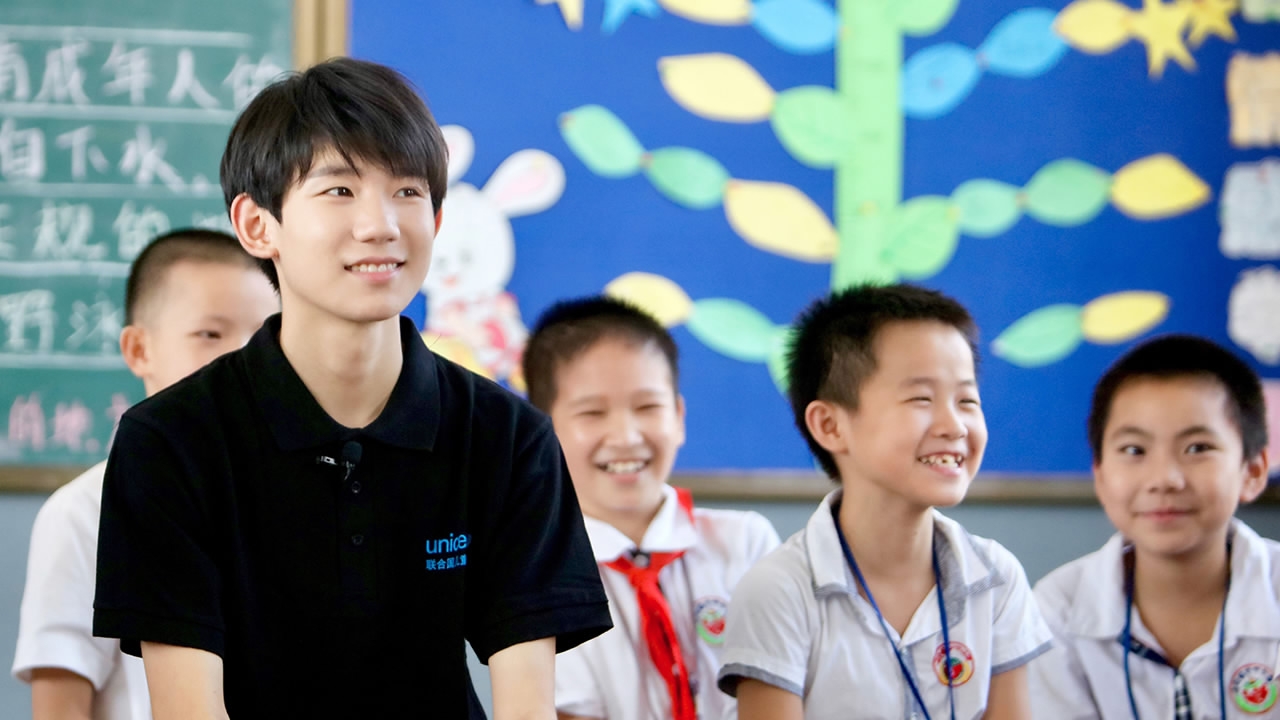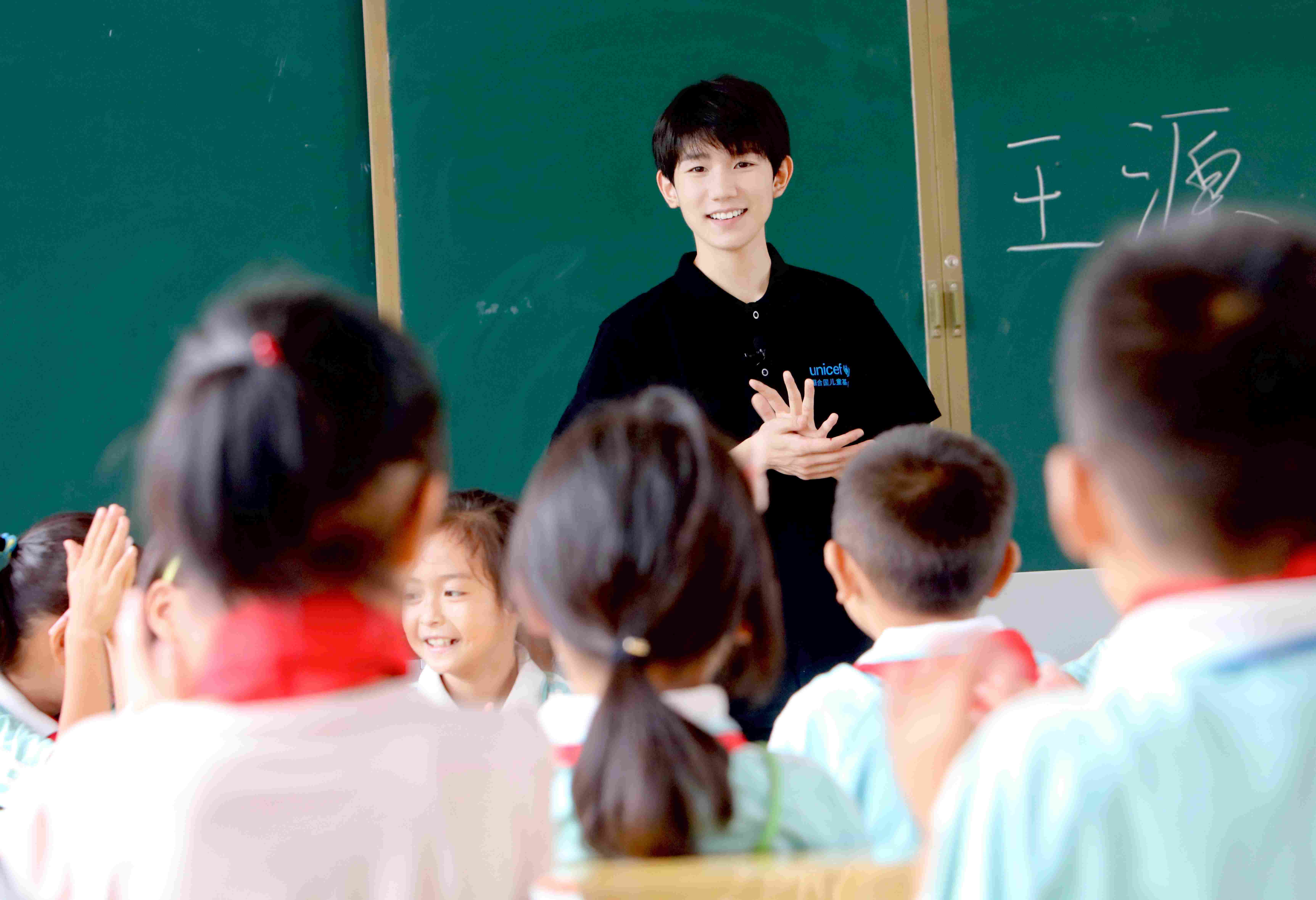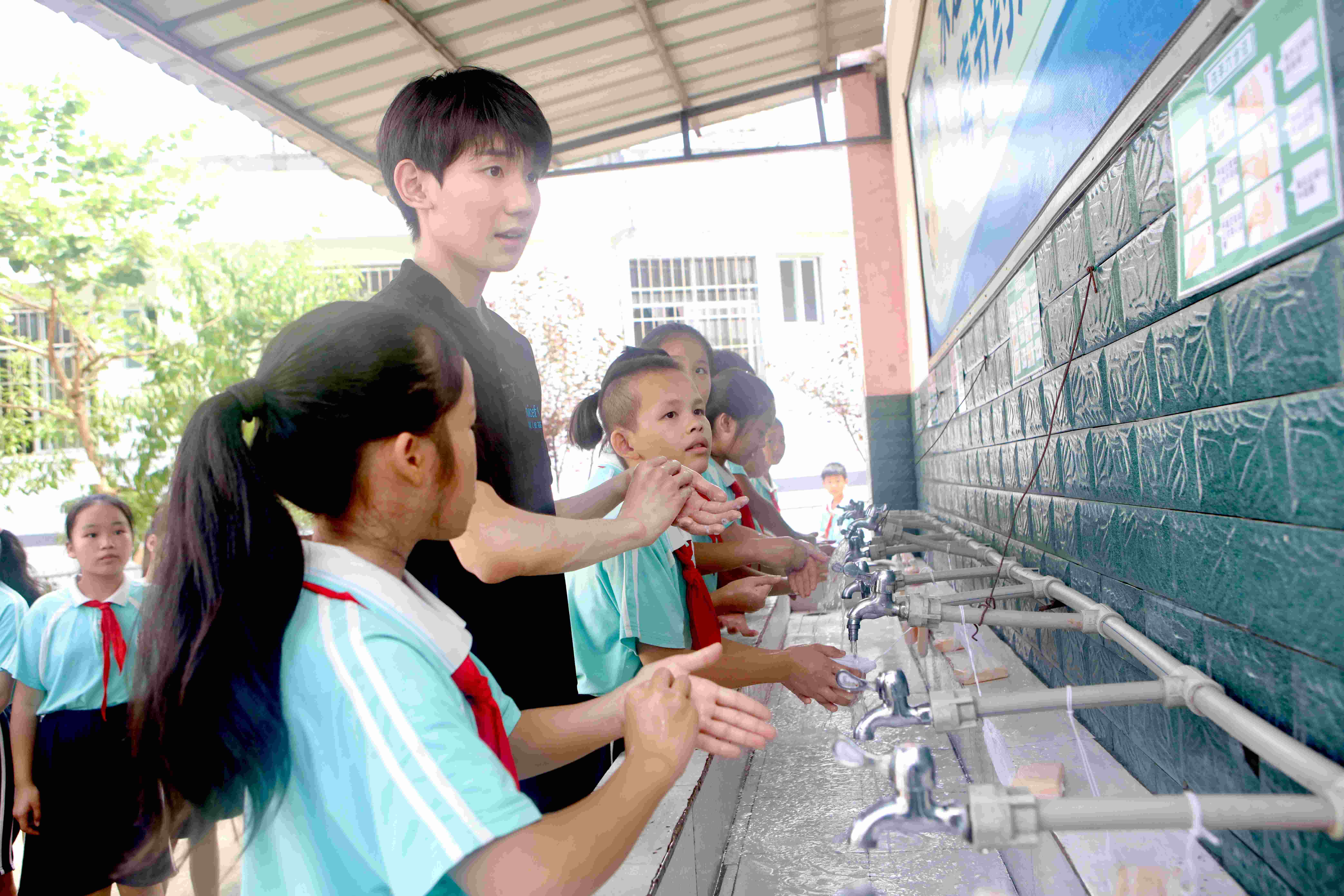
Culture
22:52, 15-Nov-2017
Chinese teen pop star Wang Yuan calls for quality education for children
By Li Jingjing

After debuting as a member of boy band TFBoys in 2013, Wang Yuan, then only 13 years old, rose to stardom and became one of the most widely known names in China.
On Weibo, a twitter-like social network in China, he himself amassed 31 million followers. In 2016, his single “Because I met you” was watched over 300 million times and reposted over 400 million times.
Earlier this month, Wang is named one of “The 30 Most Influential Teens of 2017” by Time Magazine.
All those facts and figures prove his strong influence as a teenage pop star in China.
This year, the now 17-year-old turned his influence into something that may change the life of kids his age or younger, by becoming the Special Advocate for Education for the United Nations International Children's Fund (UNICEF).
“From today on, I will work harder to spread information that is helpful for kids to get an education in China, and do much more practical work. Getting an education is people’s right, rather than a luxury,” said Wang when he was appointed as the Special Advocate for Education in June.
And he did keep his promise.
In June, Wang visited two child-friendly schools, which are carried out jointly by UNICEF and China’s Ministry of Education, in Sanjiang County, Guangxi Zhuang Autonomous Region, in south China.

Wang Yuan gives a music lesson to the students at a child-friendly school in Sanjiang, Guangxi Zhuang Autonomous Region, in September 2017./Photo courtesy of UNICEF China
Wang Yuan gives a music lesson to the students at a child-friendly school in Sanjiang, Guangxi Zhuang Autonomous Region, in September 2017./Photo courtesy of UNICEF China
“Many rural schools have run-down classrooms and outdated facilities, but to my surprise the two schools I visited were modernized with great teaching and a beautiful school environment,” Wang said.
He believes the child-friendly school program is quite a groundbreaking concept that cares about children’s interests and their psychological health.
The child-friendly program was launched by UNICEF and China’s Ministry of Education in 2001 and aims to improve the facilities of schools as well as the quality of education.
It also focuses on helping kids between 6 to 12 years old learn how to engage with society and pay attention to their mental health.
Educational problems
Education for children, especially for those “left-over children” in rural China, has long been a concerning problem.
The migrating population in China has kept rising over the past few decades. According to the research done by UNICEF, “Population Status of Children in China in 2015: Facts and Figures,” the migrant population increased from 221 million in 2010 to 247 million.
That means a large number of children are left in their hometowns while their parents migrate to another city for work.
“UNICEF is working towards every child having access to a child-friendly school. China has recognized the child-friendly schools model so we hope to see this approach replicated across the country,” says Rana Flowers, UNICEF Representative to China, at a press conference in Beijing on Monday.

Wang Yuan leads children in handwashing at a child-friendly school in Sanjiang, Guangxi Zhuang Autonomous Region, in September 2017./Photo courtesy of UNICEF China
Wang Yuan leads children in handwashing at a child-friendly school in Sanjiang, Guangxi Zhuang Autonomous Region, in September 2017./Photo courtesy of UNICEF China
“Actually I’ve always been very interested in it. But I didn’t think that I could be an advocate. But, after I became a public figure, I received a lot of attention from the public, got a lot of love too, and I’m thinking about how I can repay society,” Wang told CGTN, explaining why he chose to be an advocate for education.
“Because I’m also young, and still receiving education. So I care more about it,” he added.

SITEMAP
Copyright © 2018 CGTN. Beijing ICP prepared NO.16065310-3
Copyright © 2018 CGTN. Beijing ICP prepared NO.16065310-3